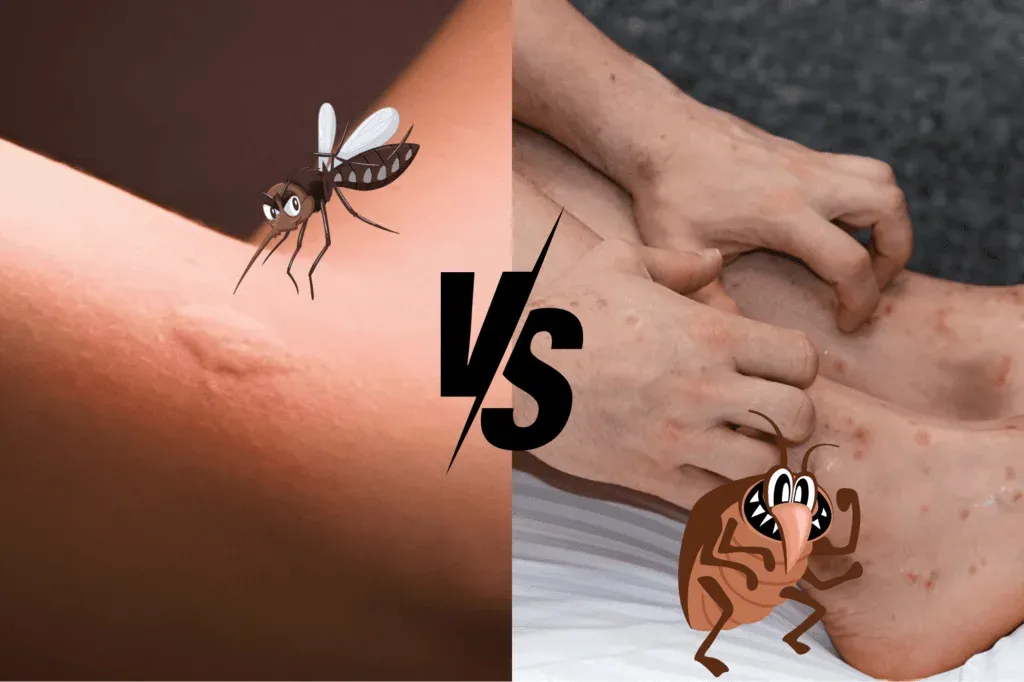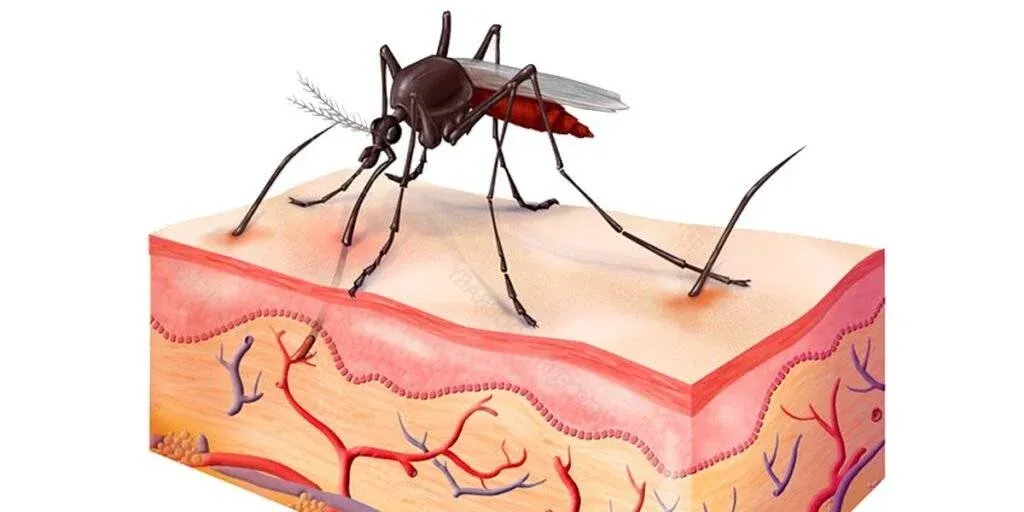If you’ve ever woken up with red, itchy bumps on your skin, you’re not alone. But one question probably comes to mind: mosquito bites vs bed bug bites—which one is it?
While both types of bites can appear similar, knowing how to tell them apart is crucial for effective treatment and prevention. In this article, we’ll explore the differences between mosquito and bed bug bites, symptoms to watch for, and how to treat each type safely at home.
Let’s settle the mosquito bites vs bed bug bites debate once and for all.
Why Bite Identification Matters
Correctly identifying the source of your bite is important for three main reasons:
Targeted Treatment – Remedies differ depending on the insect
Prevent Infestation – Bed bugs may require professional extermination
Health Risks – Some mosquito bites can transmit diseases
So, let’s begin with understanding the specific characteristics of Both.
What Do Mosquito Bites Look Like?
Mosquito bites typically appear as:
Round, puffy, red bumps
Itchy and warm to the touch
Appearing shortly after being bitten (within minutes)
Usually isolated or randomly placed on exposed skin
Mosquitoes are most active during the early morning or evening hours and are often drawn to exposed skin during outdoor activities.
What Do Bed Bug Bites Look Like?
Bed bug bites differ in several ways. They often show up as:
Small red bumps or welts
Grouped together in lines or clusters (often 3–5 in a row)
Itching develops over several hours or overnight
Usually located on areas exposed while sleeping (arms, neck, face, shoulders)
In the mosquito bites vs bed bug bites comparison, bed bug bites are more likely to follow a pattern and appear after sleep.
Mosquito Bites vs Bed Bug Bites: Key Differences
| Feature | Mosquito Bites | Bed Bug Bites |
|---|---|---|
| Appearance | Single, raised, puffy bump | Multiple red bumps, often in clusters |
| Itch Onset | Immediately after bite | Delayed itch (several hours later) |
| Location | Exposed areas (arms, legs) | Upper body, face, neck, shoulders |
| Time of Occurrence | Outdoors, especially at dusk/dawn | At night while sleeping |
| Bite Pattern | Random or scattered | Linear or grouped pattern |
| Bug Detection | Easily visible flying insects | Hard to spot, hide in mattress or crevices |
If you’re still unsure after this mosquito bites vs bed bug bites comparison, look around your home—especially your mattress, sheets, and headboard—for signs of bed bug infestations like small black spots or shed skins.
How to Treat Mosquito Bites
Treating mosquito bites is relatively simple. Here are some effective methods:
Clean the Area: Use soap and water to prevent infection
Apply Cold Compress: Reduces swelling and numbs itching
Use Calamine Lotion or Anti-Itch Creams: Helps soothe irritated skin
Take Antihistamines: Reduces histamine response and itching
These steps are usually enough unless you experience a severe allergic reaction. In the mosquito bites vs bed bug bites scenario, mosquito bites generally heal faster and don’t require extensive intervention.
How to Treat Bed Bug Bites
Bed bug bites can take longer to heal. Try these remedies:
Wash the Affected Area: Use antibacterial soap
Apply Hydrocortisone Cream: Helps reduce itching and redness
Use Aloe Vera or Witch Hazel: Natural remedies to calm inflammation
Avoid Scratching: Prevents infection and scarring
Take Oral Antihistamines: Helps reduce allergic responses
If bites get worse, persist for more than a week, or become infected, consult a healthcare provider.
When to See a Doctor
In either case, seek medical help if you experience:
Severe allergic reactions (trouble breathing, swelling of lips or tongue)
Signs of infection (pus, severe redness, or spreading rash)
Fever or flu-like symptoms (possible in mosquito-borne diseases)
When deciding between mosquito bites vs bed bug bites, remember that mosquito bites can, in rare cases, carry viruses like dengue or West Nile. Bed bug bites, however, rarely transmit disease but can cause significant discomfort or allergic reactions.
How to Prevent Mosquito Bites
Prevention is better than cure. To avoid mosquito bites:
Use insect repellent containing DEET, picaridin, or lemon eucalyptus oil
Wear long-sleeved clothing during peak mosquito hours
Use mosquito nets when sleeping outdoors or in high-risk areas
Eliminate standing water around your home
If you frequently travel or live in mosquito-prone areas, prevention is your first line of defense in the mosquito bites vs bed bug bites dilemma.
How to Prevent Bed Bug Bites
Unlike mosquitoes, bed bugs are indoor pests. Preventing bites involves:
Regularly inspecting mattresses and bedding
Using protective mattress covers
Washing bed linens in hot water
Avoiding second-hand furniture unless inspected thoroughly
Contacting a pest control expert if infestation is suspected
Compared to mosquitoes, bed bugs are harder to eliminate, so identifying them early is crucial.
Final Thoughts
The mosquito bites vs bed bug bites question is more common than you might think. With overlapping symptoms like itching, redness, and swelling, it’s easy to confuse the two. However, differences in bite patterns, timing, and location can help you identify the culprit.
By understanding the differences and using the right treatment, you can find relief faster and take steps to prevent future bites. Whether you’re battling flying mosquitoes outside or sneaky bed bugs indoors, your best defense is quick action, proper care, and ongoing prevention.






